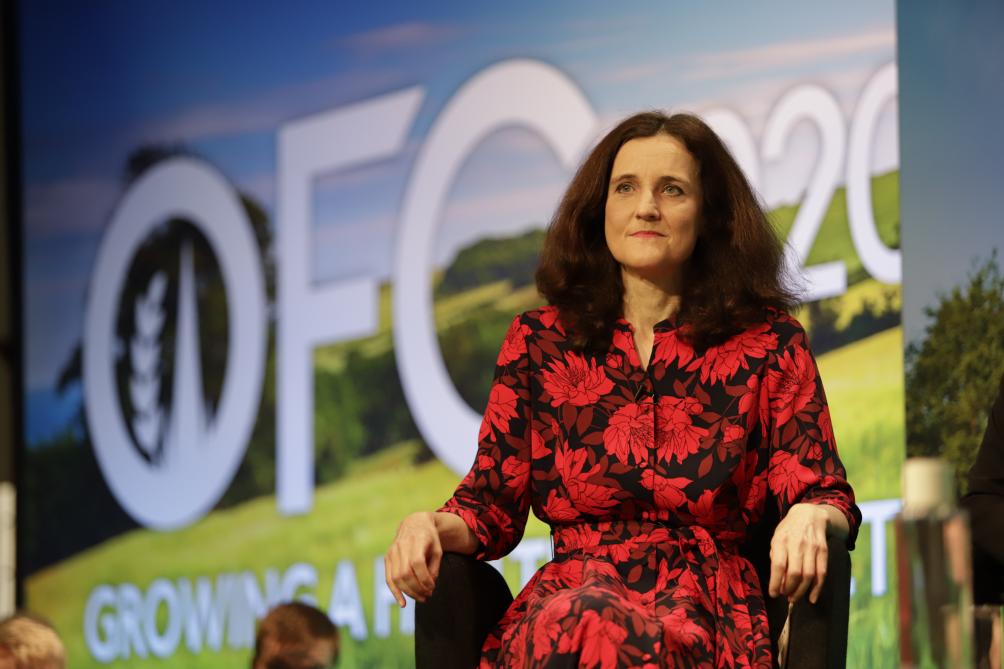Politics session: We will walk away if deal is not in national interest, says Environment Secretary
8th January 2020 by OFC press team

We will walk away if deal is not in national interest, says Environment Secretary
Environment Secretary Theresa Villiers said government would walk away from trade negotiations if it was not in Britain’s national interest.
This was in response to challenges in this morning’s politics session by both her co-speakers and the audience – the latter in an impromptu poll which clearly illustrated that not one of the delegates believed the government would defend their interests in international talks.
Seeking to reassure farmers that UK food production would not be undermined by cheap imports, the Secretary-of-State said:
“We can maintain and, indeed, enhance UK standards as we negotiate new trading relationships with friends and neighbours in the EU and other leading global economies. We will not dilute our strong environmental protection; we will not dilute our high standards of food safety and animal welfare."
Co-speaker NFU President Minette Batters said the farming union would never accept a two-tier system and trade deals that would put UK farmers out of business by allowing imports of food that would be illegal for farmers to produce in the UK. She called once again for the government to set up a food standards commission with the power to scrutinise potential trade deals.
However, Ms Villiers would not commit, saying government is still unsure if this is the right mechanism to adopt:
“There are a number of groups already established to engage between government and business, including farmers, on trade negotiations but I will take your message back to my colleagues.”
The minister also set out plans for the agriculture bill, which will be submitted to parliament later this month. In the biggest reset in 40 years, it will have the strongest environmental agenda of all of its predecessors. There will be no ‘one size fits all’, she said, and will aim to support farmers, working at different scales and in different ways.
Farming subsidy will be phased out over seven years and the emphasis will shift to public money for public good to mitigate climate change, enhance biodiversity and maintain high animal welfare.
With public good leading the agenda, Craig Bennet, CEO of Friends of the Earth, who also spoke during the session urged a collaborative approach. He cited benefits for both the farmer and the environment, for example, doubling the number of trees planted, reducing meat consumption to encourage extensively reared livestock farming and nurturing peat bogs.
With the UK leaving the EU on 31st January, Professor Fiona Smith outlined the landscape for agrifood trade both during and after the transition period, reassuring the audience that the UK is not going to head off into the equivalent of the Wild West but with a reminder of where the risks and opportunities are, and that when Greenland left the EU it took three years to negotiate one issue of extraction.
Watch the full presentations and panel session.
